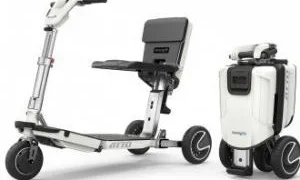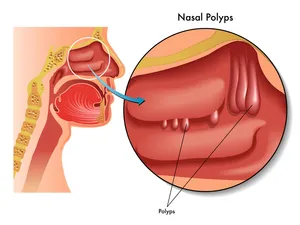Nasal polyps are soft, noncancerous growths that develop in the lining of your sinuses or nasal passages, often causing symptoms like nasal congestion, loss of smell, sinus infections, and difficulty breathing. While medications such as nasal corticosteroids and antihistamines can often provide relief, some patients may find that their polyps persist or worsen, despite treatment.
If you’ve been battling chronic sinus problems, you may be wondering: Am I a candidate for nasal polyps surgery? Surgery is often considered when other treatments fail to provide adequate relief or when the polyps significantly impact your quality of life.
When to Consider Nasal Polyps Surgery:
- Chronic Nasal Congestion and Difficulty Breathing Nasal polyps can block your nasal passages and sinuses, leading to chronic congestion that makes breathing difficult. If you’ve been dealing with constant stuffiness, snoring, and an inability to breathe freely through your nose despite trying medications, nasal polyp surgeon recommends surgery which might be the best option to remove the polyps and clear your airways.
- Frequent Sinus Infections Polyps can block the normal flow of mucus, leading to frequent sinus infections (sinusitis). If you experience chronic or recurring infections that don’t respond to antibiotics or other treatments, surgery may be necessary to remove the obstruction and improve drainage.
- Ineffectiveness of Medications and Steroid Treatments Steroid nasal sprays or oral corticosteroids are the first line of treatment for nasal polyps. However, for some individuals, these treatments don’t provide long-term relief. If your polyps continue to cause significant symptoms or recur despite a long course of medication, it may be time to discuss surgery with your ENT specialist.
What to Expect From Nasal Polyps Surgery:
- Endoscopic Sinus Surgery (ESS) The most common method for removing nasal polyps is endoscopic sinus surgery (ESS). This minimally invasive procedure involves using a small camera (endoscope) to visualize the nasal passages and remove the polyps with specialized surgical tools. This is often done under general anesthesia, and recovery typically takes a few weeks.
- Benefits of Surgery Surgery can provide significant relief from nasal congestion, sinus infections, and loss of smell. It can also help improve breathing and restore the normal flow of mucus, leading to fewer infections and improved quality of life.
- Risks and Considerations Like any surgery, there are risks involved with nasal polyps surgery. Potential complications include bleeding, infection, and injury to the surrounding structures, such as the eyes or brain. While complications are rare, it’s important to discuss these risks with your ENT surgeon before making a decision.
- Post-Surgery Care and Recovery After surgery, you’ll likely experience some swelling, discomfort, and mild bleeding, which is normal. You’ll need to follow your doctor’s instructions on post-operative care, including using nasal saline sprays, avoiding blowing your nose, and possibly using oral corticosteroids to reduce inflammation. Full recovery can take several weeks, during which time you’ll have follow-up appointments to monitor your progress.
Alternatives to Surgery:
- Nasal Steroid Sprays and Oral Medications For many patients, nasal polyps can be managed with nasal corticosteroid sprays or oral steroids. These medications work by reducing inflammation and shrinking the polyps. While this treatment can help control symptoms, it may not be effective for everyone, especially in cases of large or persistent polyps.
- Allergy Treatments If your nasal polyps are related to allergies, your doctor may recommend allergy treatments, including antihistamines or immunotherapy (allergy shots), to control inflammation and reduce the likelihood of polyps recurring.
- Saline Irrigation Regularly irrigating your nasal passages with saline can help reduce congestion and remove mucus, which may help alleviate symptoms associated with nasal polyps. While this is not a cure, it can offer symptom relief and improve the flow of mucus.
Conclusion:
If you’ve been dealing with persistent symptoms caused by nasal polyps, surgery may be the solution to restore your quality of life. However, surgery is usually considered when other treatments have failed or when polyps are particularly large or problematic. It’s important to consult with a skilled ENT specialist who can assess your specific situation and recommend the best treatment option.
Nasal polyps surgery can provide significant relief from chronic congestion, sinus infections, and loss of smell. If you think you may be a candidate, speak with your healthcare provider about your symptoms and discuss potential surgical options.
Read Also : Salon Blow Dry Bars: What Are They and Why You Need to Try One.
FAQs:
1. How do I know if my nasal polyps require surgery?
If you’ve tried medications like nasal steroids and still experience persistent symptoms such as nasal congestion, sinus infections, or loss of smell, surgery may be recommended to remove the polyps and improve your breathing.
2. Is nasal polyps surgery covered by insurance?
Most health insurance plans cover nasal polyps surgery, as it is often considered medically necessary for patients who haven’t responded to other treatments.
3. Can nasal polyps come back after surgery?
Yes, nasal polyps can recur after surgery, particularly if underlying conditions like allergies or asthma are not managed effectively. Continued treatment with nasal sprays, allergy management, and lifestyle changes can help reduce the risk of recurrence.
4. How long does it take to recover from nasal polyps surgery?
You may experience mild swelling, discomfort, and bleeding initially, but these symptoms usually subside as your sinuses heal. Full recovery can take several weeks, depending on the extent of the surgery.



































Comments 2